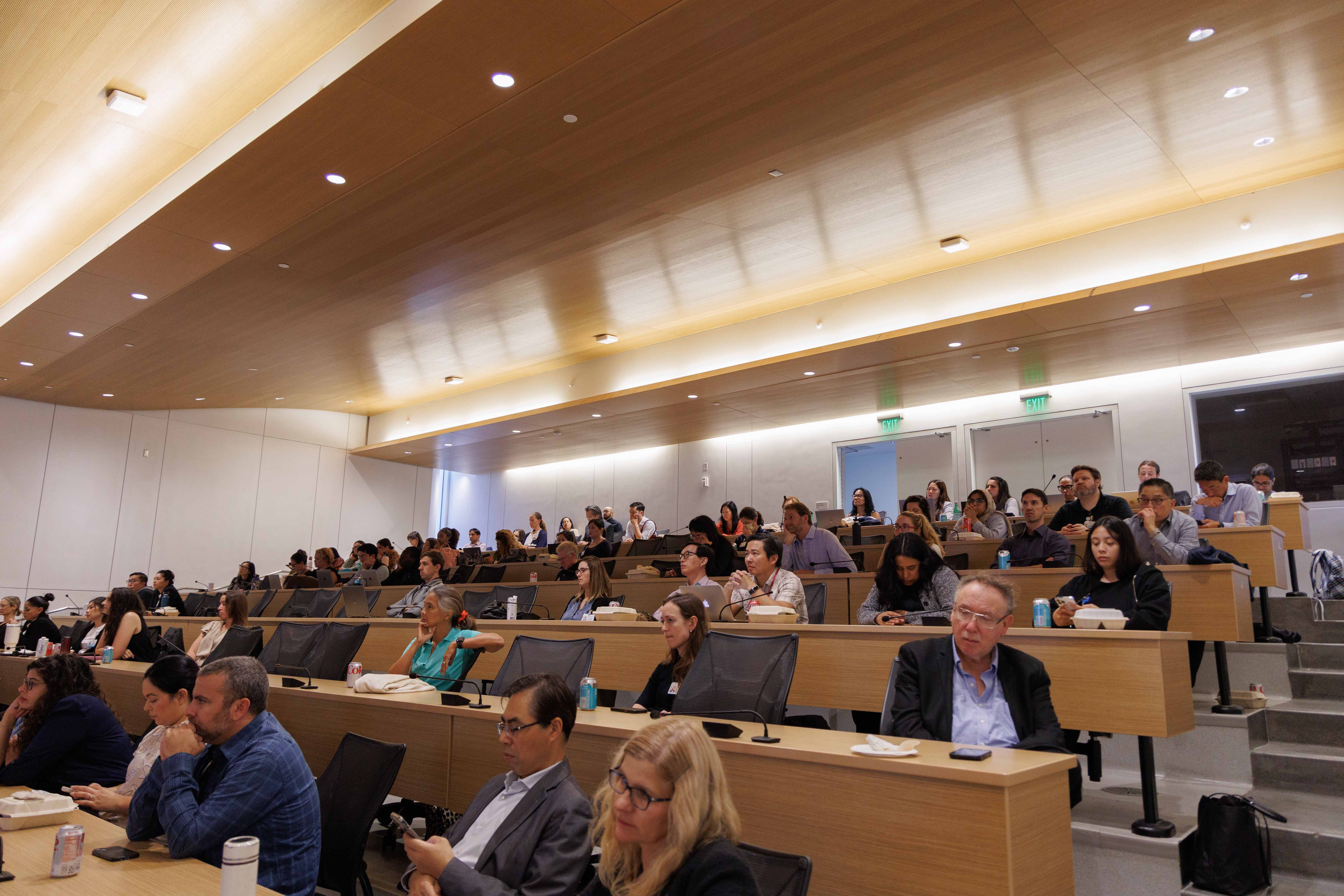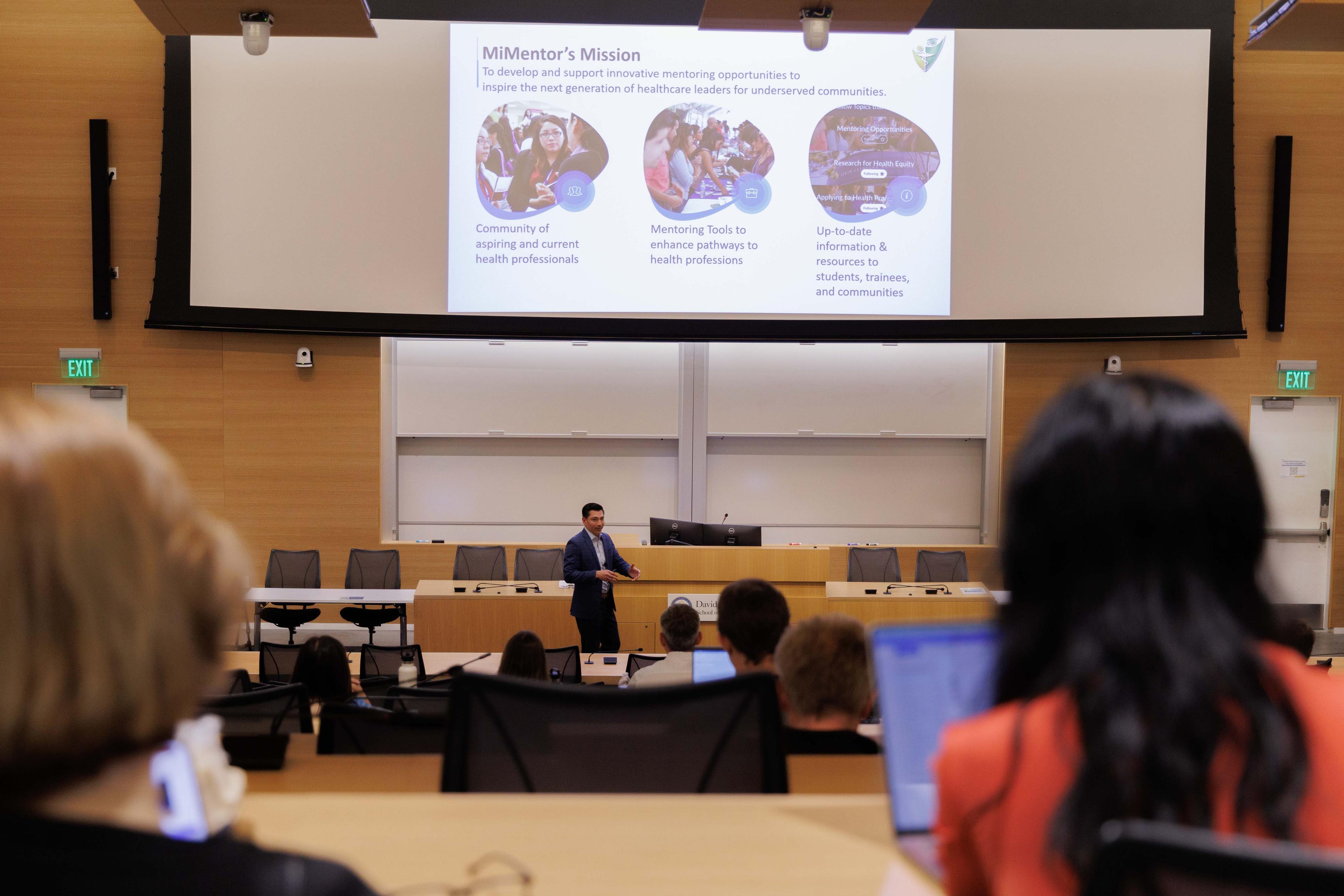David Geffen School of Medicine hosts inaugural Medical Education Day
Medical students, faculty, residents and staff listen to a presentation about MiMentor. MiMentor aims to encourage medical schools to support and inspire healthcare leaders to focus their work on underserved communities. (Shane Yu/Daily Bruin staff)
By Yashila Suresh
Oct. 20, 2024 5:27 p.m.
This post was updated Oct. 20 at 11:49 p.m.
David Geffen School of Medicine hosted its inaugural Medical Education Day on Oct. 8.
The event was attended by educators, students and faculty and was inspired by previous retreats for the Medical Education Committee and the Clerkship Curriculum Committee, a DGSOM spokesperson said. It included talks, panels and open meetings of the Medical Education Committee, which discussed the school’s curriculum.
Dr. Jason Napolitano, the associate dean for cultural affairs at the School of Medicine and an internal medicine physician, kicked off the event with a welcome address, adding that the event is a time for educators to come together.
“We make doctors, but we inspire learners,” he said.
Audience members included former and current chairs of the Medical Education Committee, who are responsible for designing the medical curriculum for all UCLA medical students.
Dr. Jane Weinreb, the current MEC co-chair, and Dr. Misty Richards said the goal of the 30-member committee is to serve and platform students.
Throughout the event, attendees learned how educational practices can adapt with changing technology and discussed what has and has not worked for students.

The Pre-Clerkship Curriculum meeting, led by Napolitano, highlighted resources that current medical students need. Throughout the meeting, members discussed the use of third-party learning resources and equitable access to these resources, as well as turning these resources into a supportive learning tool.
“What makes a medical school in 2024 and beyond is the ability to interact beyond lecture,” Napolitano said.
He added that the value of education is the ability for it to be applied and not just read in books.
Meeting members, such as Weinreb, voiced concerns that not all voices are being heard when addressing issues in curriculum because some students are afraid of offending their instructor.
Dr. Peter Quiros, who co-hosted the meeting with Napolitano, said third- and fourth-year students are not as vocal when it comes to providing input, adding that that is an example of something that should be considered when creating a new curriculum.
“It really is a continuous quality improvement process,” said Quiros, a neuro-ophthalmologist at the UCLA Stein Eye Institute.
Allinta Tadesse and Kimberly Merida-Chan, coordinators for the surgery education department at the School of Medicine, said they attended the event as a way to connect with other educators and learn how to enhance student support. Tadesse added that the event helped her to learn about navigating medical education.
“I learned from it that a lot of the education coordinators and faculty are more in touch with each other than I thought,” Merida-Chan said.
Workshops conducted by fellow medical professionals ranged from learning how to make medical education more accessible to incorporating artificial intelligence in the new Healer, Educator, Advocate, Leader and Scholar curriculum. HEALS, which launched three years ago, is a new curriculum designed in response to changing science and technology.
The event concluded with a poster fair highlighting research by UCLA students. Napolitano said his goal is to empower students pushing them to become leaders in healthcare, advocacy and change.
“We want to reflect the True Bruin values (and) cultivate a spirit of inquiry,” he said.
Contributing reports by Shaun Thomas, science and health editor.
